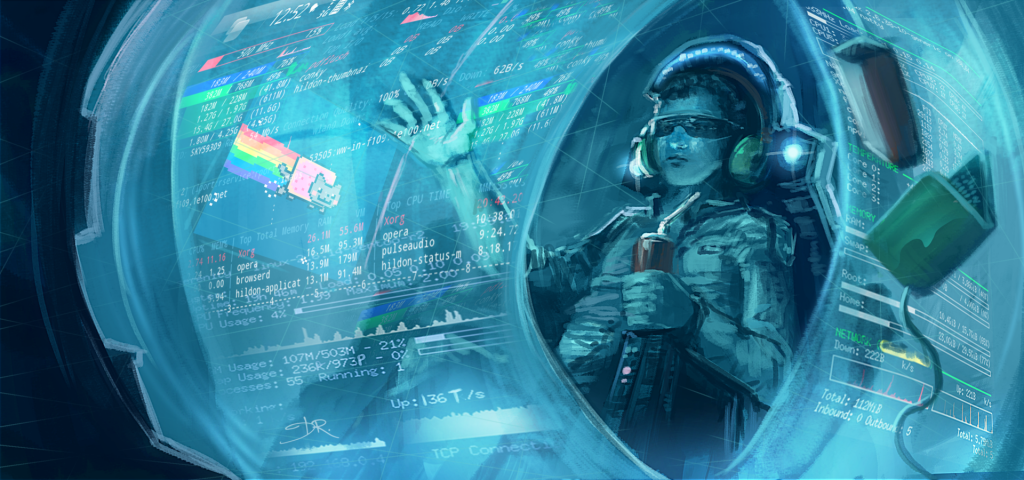
The popular genre of science fiction gained its name during the 1920s thanks to a number of pulp magazines that were popular at the time. Although the term itself did not exist before the 1920s, it has been retroactively applied to a number of works that were written during the 19th century, such as Mary Shelly’s Frankenstein and much of H. G. Wells’ work.
In modern writing there are many established tropes within the science fiction genre, as well as its fragmenting into a number of sub-genres. One of the most common themes within science fiction is the concept of space travel and colonisation of other celestial bodies. Futures in which humans have begun to explore the solar system and start colonising the Moon and Mars are generally considered to be near -future science fiction, particularly as it is feasible that these feats could be achieved within the 21st century. Space fiction that focuses more on exploration amongst the stars tends to involve the use of faster than light travel, something that is currently considered to be impossible, at least in the way that we think about conventional travel. There are many types of faster than light travel but they all roughly follow the same goal: exploring distant solar systems. It is theorised that there are a number of planets within our galaxy that are inhabitable by humans, but that it would take longer than the average human lifetime to reach them using conventional means of travel. Even technologies that may allow close to light speed travel would still require substantial amounts of time, this has led to a number of science fiction stories that involve multi-generational star ships.
-future science fiction, particularly as it is feasible that these feats could be achieved within the 21st century. Space fiction that focuses more on exploration amongst the stars tends to involve the use of faster than light travel, something that is currently considered to be impossible, at least in the way that we think about conventional travel. There are many types of faster than light travel but they all roughly follow the same goal: exploring distant solar systems. It is theorised that there are a number of planets within our galaxy that are inhabitable by humans, but that it would take longer than the average human lifetime to reach them using conventional means of travel. Even technologies that may allow close to light speed travel would still require substantial amounts of time, this has led to a number of science fiction stories that involve multi-generational star ships.








